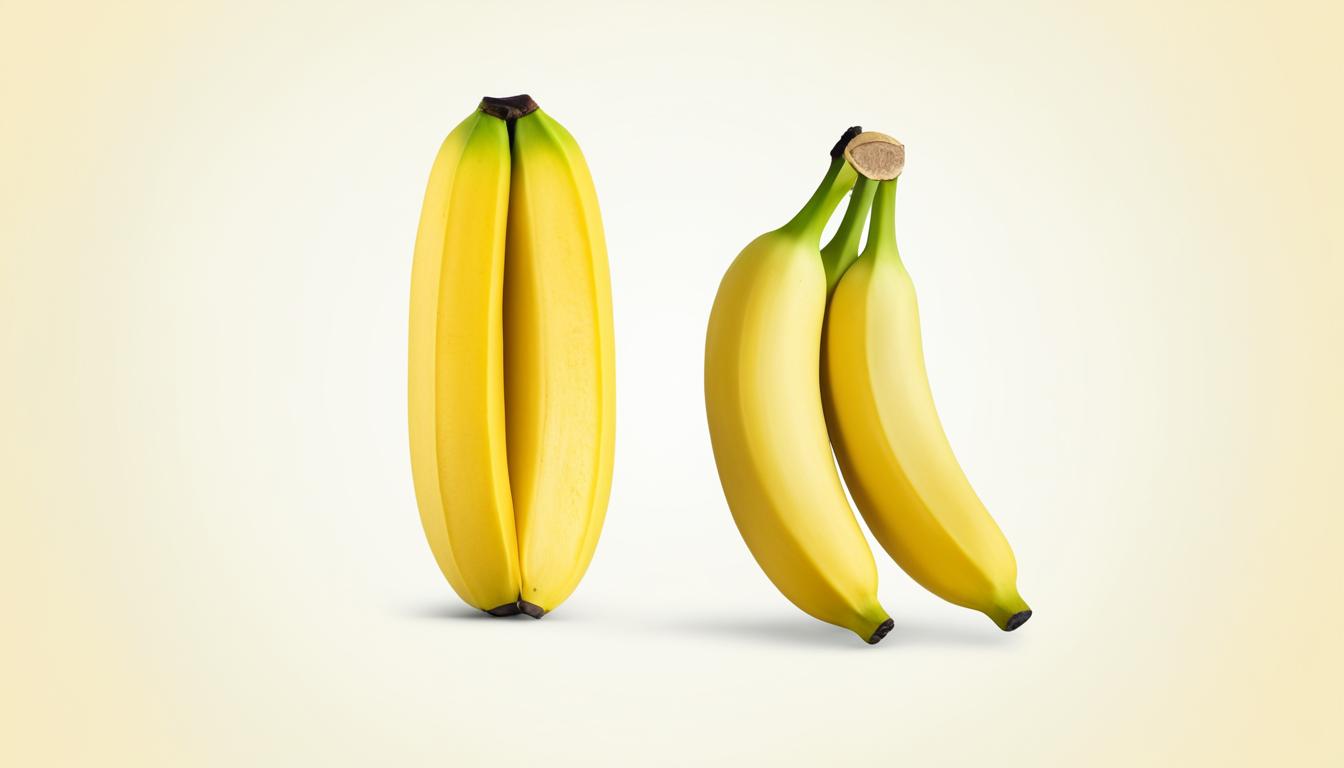If you are a fan of bananas, you may be wondering about the difference in nutritional content between baby bananas and larger bananas. Understanding the nutritional benefits of each can help you make the best dietary choices for your needs.
In this article, we will compare the nutritional content of baby bananas and larger bananas. We will also explore how these differences can affect your health and well-being. By the end of this article, you will have a clear understanding of the nutritional content of these two types of bananas and the benefits they can offer your body.
Nutritional content of baby bananas
Now, let’s take a closer look at the nutritional content of baby bananas. While smaller in size than their larger counterparts, baby bananas pack a powerful punch in terms of vitamins, minerals, and other vital nutrients.
One medium-sized baby banana contains:
- 89 calories
- 23 grams of carbohydrates
- 1 gram of protein
- 0.3 grams of fat
- 2.6 grams of fiber
In addition to these macronutrients, baby bananas also contain high levels of essential vitamins and minerals, including:
- Potassium: One baby banana contains about 350-400 mg of potassium, which is essential for maintaining healthy blood pressure levels and heart function.
- Vitamin C: This powerful antioxidant is crucial for supporting immune system function, wound healing, and collagen production.
- Vitamin B6: Also known as pyridoxine, this vitamin is vital for brain development and cognitive function, as well as red blood cell production.
- Magnesium: This vital mineral supports muscle and nerve function, as well as bone health.
Overall, incorporating baby bananas into your diet is an excellent way to boost your intake of key nutrients and maintain a healthy lifestyle.
Nutritional Content of Larger Bananas
When it comes to the nutritional content of larger bananas, there are a few differences compared to baby bananas. Firstly, larger bananas tend to have a higher overall nutrient content due to their size. They contain more calories, carbohydrates, and fiber compared to baby bananas.
In terms of vitamins and minerals, larger bananas are an excellent source of potassium, vitamin C, vitamin B6, and magnesium. Potassium is particularly important for maintaining a healthy heart and blood pressure, while vitamin C is essential for maintaining a strong immune system.
Additionally, larger bananas are a good source of dietary fiber, which can aid in digestion and help regulate blood sugar levels. They also contain antioxidants such as dopamine and catechins, which have been shown to have various health benefits.
However, it’s important to note that larger bananas may have higher calories and sugar content than baby bananas. This makes them less suitable for individuals with strict dietary requirements.
Overall, the nutritional content of larger bananas makes them a great addition to any healthy diet. They provide numerous health benefits and can be enjoyed in a variety of ways, such as added to smoothies or sliced on top of oatmeal.
Comparison of Baby Bananas and Larger Bananas
When it comes to choosing between baby bananas and larger bananas, there are several factors to consider. One of the most significant differences between the two is their nutritional content.
Baby bananas are smaller in size and have a thinner skin than larger bananas. However, they are still packed with essential vitamins and minerals such as vitamin C, potassium, and magnesium. In fact, baby bananas tend to have higher concentrations of these nutrients per serving than larger bananas.
On the other hand, larger bananas contain more calories and fiber than baby bananas. While this may be beneficial for individuals who are trying to increase their fiber intake, it may not be ideal for those who are watching their calorie intake. Additionally, the vitamin and mineral content of larger bananas is slightly different than that of baby bananas.
In terms of taste, baby bananas are generally sweeter and have a creamier texture than larger bananas. This makes them a popular choice for snacking or adding to smoothies and desserts.
Overall, the choice between baby bananas and larger bananas ultimately comes down to personal preference and dietary needs. If you are looking for a smaller, nutrient-dense snack, baby bananas may be the better option. However, if you are trying to increase your fiber intake or prefer a larger banana, then larger bananas may be the way to go.
Regardless of which type of banana you choose, both baby and larger bananas provide a variety of essential nutrients and health benefits.

